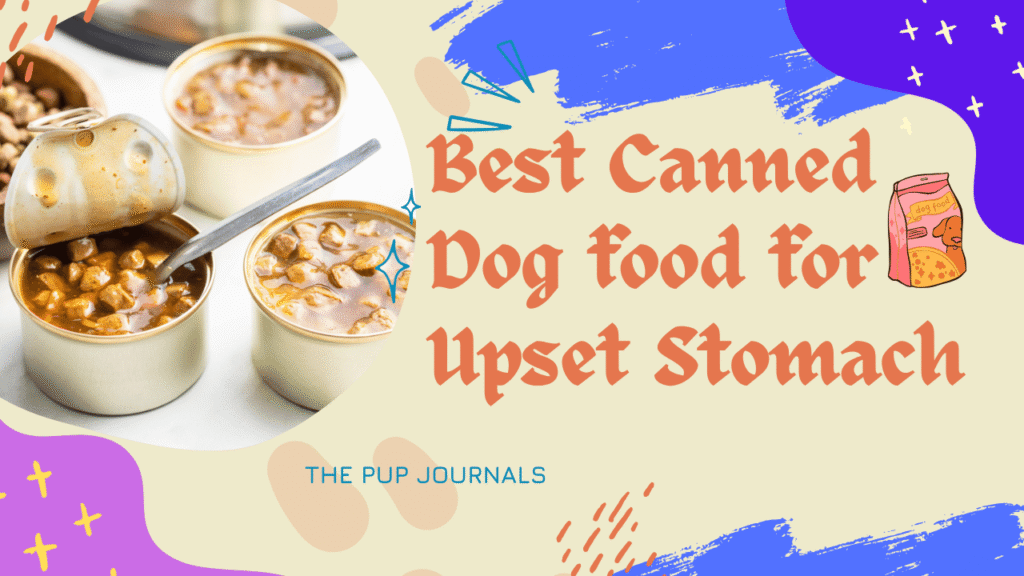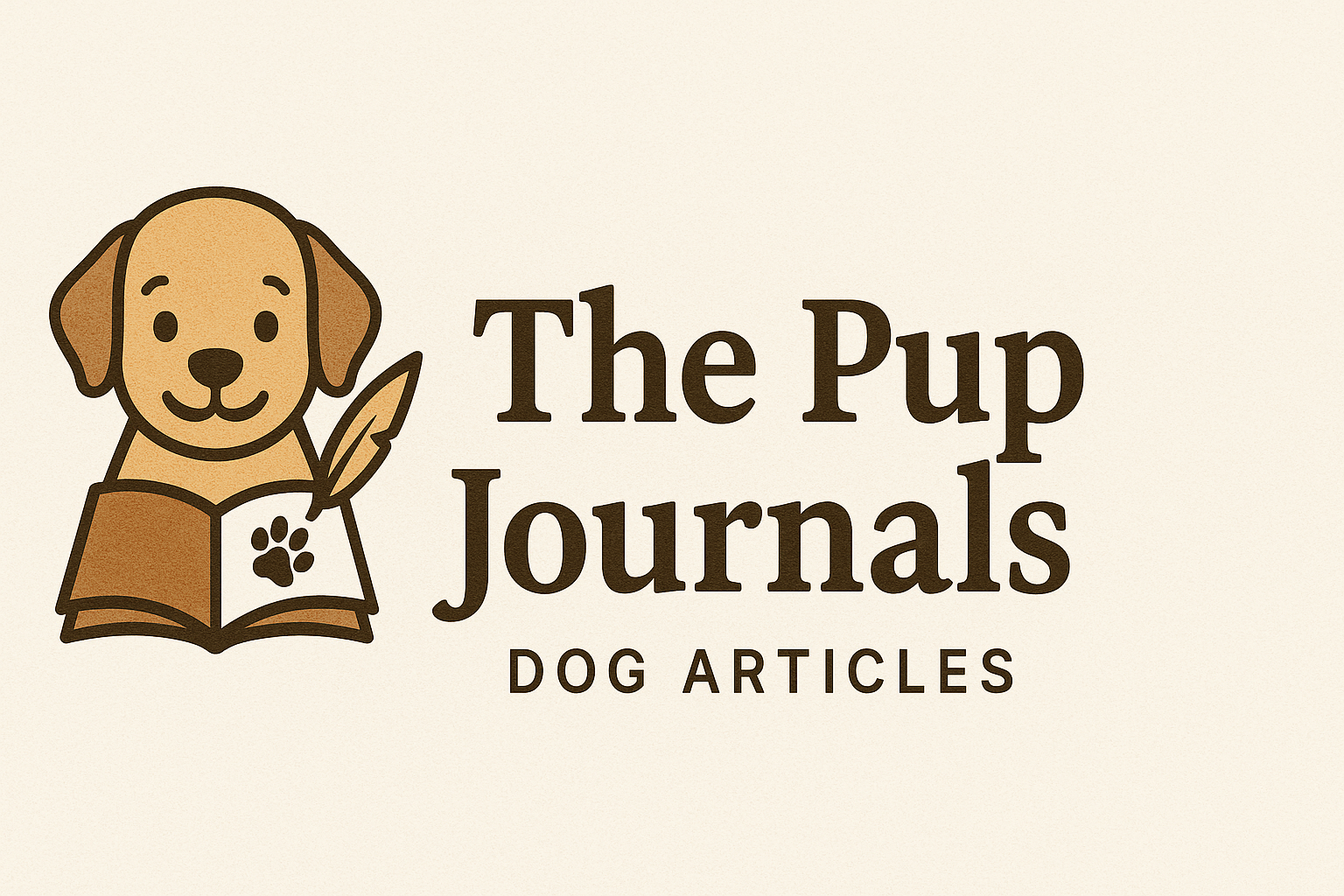
Table of contents
When your four-legged buddy is feeling under the weather, the last thing you want is to struggle coaxing them to eat. An upset stomach in dogs can show up as vomiting, diarrhea, gas—or simply a refusal to touch their food.
Why Canned Dog Food Is Ideal for Sensitive Stomachs
Canned dog food—sometimes called wet or pouch food—offers several key benefits over dry kibble when your pup’s digestive tract is out of whack:
High Moisture Content
Most canned diets are 70–80% water, which helps keep dogs hydrated when they’ve been losing fluids through vomiting or diarrhea. Proper hydration is critical for nutrient absorption and preventing complications like kidney strain or electrolyte imbalances.
Easy-to-Digest Texture
Canned foods are pre-cooked and gently processed, so proteins and carbohydrates are already broken down to some extent. That soft, homogenous texture puts less stress on an inflamed gut lining and can help your dog absorb nutrients more efficiently.
Enhanced Palatability
Nauseated dogs often reject dry kibble’s bland texture and aroma. A savory, aromatic canned formula is more likely to entice them to eat, ensuring they still get the calories and nutrients they need during recovery.
Gentle on the Gut
Reputable gastrointestinal canned diets feature simple, recognizable ingredients—often with single-source proteins and limited carbohydrates—to minimize the risk of further irritation or allergic reactions.
Key Features to Look For
When you’re scanning labels for a canned dog food that’s gentle on upset stomachs, these features should be front and center:
Single-Source Protein
Look for chicken, turkey, lamb or fish as the only meat ingredient. This lets you isolate potential allergens and makes it easier to troubleshoot sensitivities.
Digestible Carbohydrates
Rice, sweet potato, or pumpkin are preferred over fillers like corn, wheat or pea starch. They offer gentle fiber and energy without taxing the digestive tract.
Probiotics & Prebiotics
Live cultures (Lactobacillus, Bifidobacterium) and prebiotic fibers (chicory root, beet pulp) help replenish beneficial gut bacteria and support regular bowel movements.
Omega-3 Fatty Acids
Ingredients such as fish oil or flaxseed can reduce intestinal inflammation and bolster overall immune function.
Low Fat & Moderate Fiber
Especially important if your vet suspects pancreatitis or fat-sensitivity. Lower fat content eases digestive workload, while moderate fiber promotes stool consistency.
No Artificial Additives
Steer clear of artificial colors, flavors or preservatives like BHA, BHT and ethoxyquin, which can aggravate an already delicate system.
Ingredients to Avoid
Common Allergens
Corn, wheat, soy, dairy and beef are frequent triggers. If you suspect an intolerance, consider an elimination diet under your vet’s guidance.
Excessive Fillers
Ingredients such as pea hulls or cellulose add bulk without nutrition and might exacerbate loose stools.
High Fat Content
While fats are an important energy source, too much can trigger pancreatitis or worsen diarrhea in susceptible dogs.
Top 5 Canned Picks for Upset Stomachs
Below are five veterinarian-endorsed canned dog foods formulated to calm sensitive tummies and promote healing:
Hill’s Prescription Diet i/d Digestive Care Canned
Why it works: Featuring chicken and rice, this prescription-only formula includes a patented probiotic blend to restore healthy gut flora and added electrolytes to counter dehydration.
When to try: Ideal for dogs with chronic GI issues or after antibiotic regimens.
Purina Pro Plan Veterinary Diets EN Gastroenteric Canned
Why it works: With fish meal and rice as the primary ingredients, it supports easy digestion and helps maintain stool consistency. Fortified with antioxidants to support immune health during recovery.
When to try: Great for short-term flare-ups or postoperative GI care.
Royal Canin Veterinary Diet Gastrointestinal Low Fat Canned
Why it works: Specifically balanced for dogs sensitive to high-fat diets or at risk of pancreatitis, this formula is low in fat and rich in digestible proteins. Prebiotics help regulate bowel movements.
When to try: Best for higher-weight dogs or those with a history of pancreatic issues.
Blue Buffalo Natural Veterinary Diet GI Gastrointestinal Support Canned
Why it works: Deboned chicken paired with pumpkin and oatmeal delivers gentle fiber and moisture. No chicken by-product meals, corn, wheat or soy. Includes guaranteed live probiotics in every batch.
When to try: A solid choice for mild food intolerances or stress-related GI upset.
Natural Balance L.I.D. Limited Ingredient Diets Wet Food
Why it works: Uses a single novel protein (like duck) and pumpkin for prebiotic fiber. Grain-free and free from common allergens, making it perfect for true elimination trials.
When to try: When you’re pinpointing a specific trigger and need a minimal-ingredient approach.
Feeding Guidelines for Best Results
Switching to a GI-support canned diet requires patience and close observation:
- Offer Small, Frequent Meals
Rather than two large feedings, provide ¼ to ½ cup of canned food every 4–6 hours. This keeps the gut active without overwhelming it. - Monitor and Log
Track changes in stool consistency, vomiting frequency and energy levels. A simple journal or smartphone note can help you spot patterns or flag concerns to your vet. - Maintain Hydration
Even though canned food delivers moisture, always have fresh water available. If your dog won’t drink, add a tablespoon of low-sodium chicken broth to the water bowl to encourage sipping. - Transition Slowly
Once symptoms improve—usually within 24–48 hours—blend increasing amounts of your dog’s regular food with the GI-support formula, following a 25% increment schedule over 5–7 days. - Stick to Small Portions
Continue feeding smaller meals (3–4 times daily) until digestion stabilizes, then you can reassume your dog’s normal feeding routine.
When to Seek Veterinary Care
While many cases of mild GI upset resolve with dietary tweaks, contact your veterinarian immediately if you observe:
- Persistent vomiting or diarrhea lasting more than 24 hours
- Blood in vomit or stool
- Signs of dehydration, such as sunken eyes, dry gums or lethargy
- Severe abdominal pain or bloating
- Marked lethargy or refusal to move
Conclusion
No pup likes feeling crummy, but choosing the right canned dog food can fast-track their recovery and get tails wagging again. Whether you opt for a veterinarian-prescribed formula or a high-quality limited-ingredient option, focus on simple, digestible ingredients, proper hydration and gradual transitions.
Read More : Is Peanut Butter Safe for Dogs? – The Pup Journals

